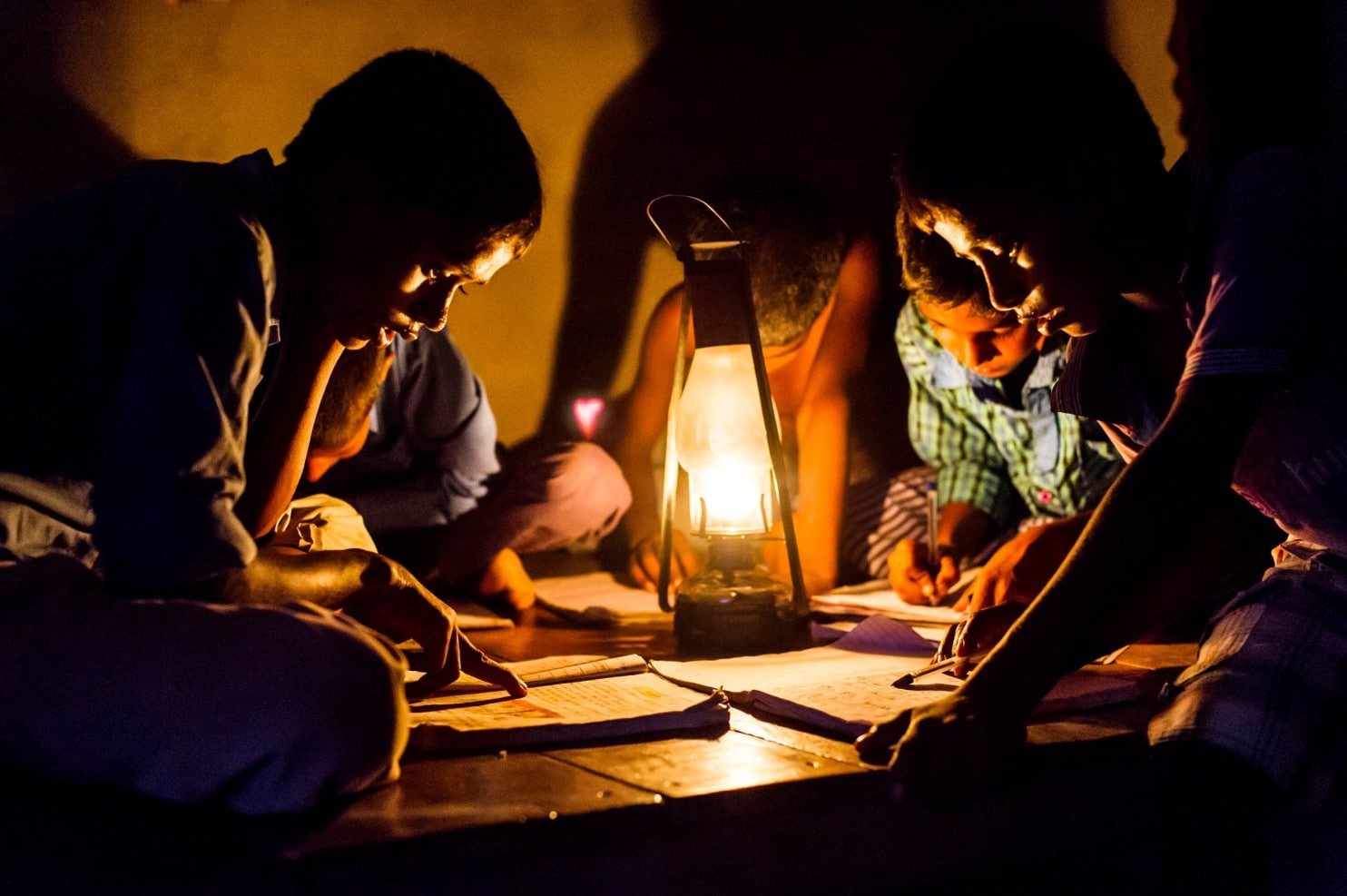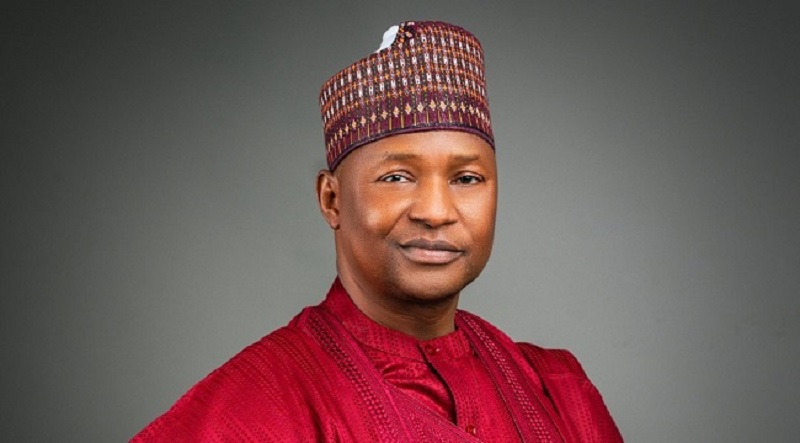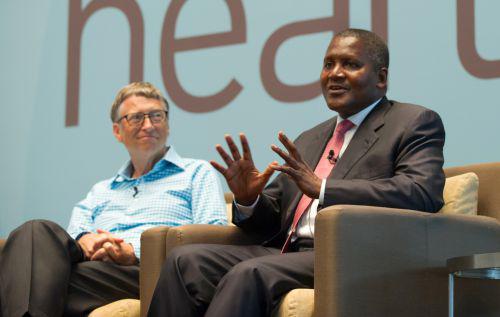General
Egypt Agrees to Help Nigeria Solve Electricity Problem

By Sodeinde Temidayo David
The Egyptian government has agreed to teach the Nigerian government better ways to solve the perennial electricity problem, which has refused to accept solutions.
Egypt is reputed to have recorded tremendous progress in solving power problems facing the country and the giant of Africa intends to explore ways the Northern African nation defeated the demon.
The Minister of Power, Mr Abubakar Aliyu, during a courtesy by the Ambassador of the Arab Republic of Egypt to Nigeria, Mr Ihab Awad, to his office, said Nigeria will work closely with the country to ensure Nigerians enjoy a better power supply.
The Minister recalled that meetings were held in the past between the two countries, which led to a Memorandum of Understanding (MOU) from the Ministry of Foreign affairs.
However, this deal was abandoned and the federal government intends to reactivate it so as to allow both nations to discuss and set up a team that will come up with key points and areas to work on.
“We also concluded that an MoU could provide the political, leading framework so that collaboration could be developed. On the basis of that, the invitation was extended to leading a high power delegation from the ministry of power to visit Egypt to discuss and examine the specific areas of collaboration.
“During my former visit to the ministry, we also came to a common understanding that there was a need for collaboration between your government and our country in the area of revitalising and renewing power generation,” Mr Aliyu noted.
On his part, Mr Awad confirm the collaboration request and expressed the willingness to share experience in handling power supply.
He said discussions have also been made on the potential of sharing experience in the area of solar energy generation, adding that the future is in renewable energy.
General
NCDMB Targets Midstream Compliance to Boost Nigeria’s Industrial Growth

By Adedapo Adesanya
The Nigerian Content Development and Monitoring Board (NCDMB) has intensified its compliance drive in the oil and gas midstream segment, convening a high-level sensitisation workshop aimed at deepening adherence to the Nigerian Oil and Gas Industry Content Development Act.
The workshop, themed Compliance with the Provisions of the NOGICD Act 2010: A Pathway to Industrialization, held in Lagos, drew key operators across gas processing, transportation, storage and infrastructure development.
Speaking on behalf of the Executive Secretary of NCDMB, Mr Felix Ogbe, the Director of Monitoring and Evaluation Division, Mr Omomehin Ajimijaye, described the midstream sector as “a critical bridge between upstream production and downstream utilisation.”
“The midstream segment plays a pivotal role in gas processing, transportation, storage and infrastructure development, all of which are essential pillars for achieving Nigeria’s industrialisation agenda,” Mr Ajimijaye said.
Mr Ajimijaye stressed that adherence to the NOGICD Act goes beyond regulatory obligation.
“Compliance with the NOGICD Act is not merely a statutory requirement,” he stated. “It is a strategic imperative for sustainable national development.”
He explained that the programme was structured to clarify registration processes, Nigerian Content Equipment Certification, expatriate quota requirements, statutory reporting templates and submission timelines.
“Our objective is to deepen stakeholders’ understanding of compliance requirements, address recurring gaps identified during Monitoring and Evaluation reviews, and foster constructive dialogue on operational realities within the midstream space,” he added.
According to Mr Ajimijaye, the board has received feedback from operators highlighting challenges in meeting Nigerian Content obligations, including reporting complexities and varying interpretations of certain provisions of the Act.
“As a responsive regulator and development-focused institution, we remain committed not only to enforcing compliance but also to providing guidance, clarity and the necessary support to enable stakeholders succeed,” he assured participants.
With Nigeria positioning gas as a transition fuel and economic growth driver, regulatory clarity in the midstream space is essential to unlocking investment and local capacity development.
The participants received technical presentations from key NCDMB divisions, including: Monitoring and Evaluation Division, Project Certification and Authorisation Division, Capacity Building Division and Zonal Coordination Division.
The interactive sessions provided practical guidance on engagement protocols with the Board and strengthened collaboration between regulators and operators.
General
AGF Fagbemi Takes Over Malami Prosecution from DSS

By Adedapo Adesanya
The Minister of Justice and Attorney General of the Federation, Mr Lateef Fagbemi, has taken over the prosecution of his immediate predecessor, Mr Abubakar Malami.
Mr Malami is facing terrorism and illegal firearms possession charges brought against him by the Department of State Service (DSS).
Mr Fagbemi, a Senior Advocate of Nigeria (SAN), took over the trial from the secret police on Wednesday at the Federal High Court in Abuja.
The Director of the Public Prosecution of the Federation, Mr Rotimi Oyedepo, announced the Attorney General’s appearance in the matter.
Mr Oyedepo told Justice Joyce Abdulmalik that the trial cannot proceed because Mr Fagbemi has just taken over the prosecution.
He informed the court that the prosecution needed more time to familiarise itself with the facts of the case.
Counsel to the defendants, Mr Adedayo Adedeji, who did not oppose the application, however, urged the court to strike out the matter if the prosecution fails to open its case at the next adjourned date, citing lack of diligent prosecution.
Justice Abdulmalik subsequently adjourned the matter to March 10 for trial and for the prosecution to formally open its case.
The court had, on February 27, admitted Malami and his son, Mr Abdulaziz, to N200 million bail, with two sureties, each one of whom must own landed property either in Maitama or Asokoro.
Justice Abdulmalik had said that the title of the property must be deposited with the Deputy Chief Registrar of the Court along with valid international passports.
The sureties were also ordered to depose to an affidavit of means and submit their two recent passport photographs to the court.
Mr Malami and his son were also ordered to submit their international passports and recent passport photographs to the court.
The DSS had arraigned the ex-AGF and his son, Mr Abdulaziz, on a five-count charge bordering on terrorism and illegal firearms possession.
In the charge, marked FHC/ABJ/CR/63/2026, filed before the Federal High Court in Abuja, Malami is also accused of refusing to prosecute suspected terrorism financiers, whose case files were handed to him while he served as the AGF and Minister of Justice.
Mr Malami and Mr Abdulaziz are equally accused of warehousing firearms in their residence at Gesse Phase II Area, Birain Kebbi LGA, Kebbi State, without lawful authority.
The DSS accused Mr Malami in count one of the charge, with knowingly abetting terrorism financing, while the ex-AGF and his son are charged in counts two to five, with unlawful, possession of a Sturm Magnum 17-0101 firearm, 16 Redstar AAA 5720 live rounds of cartridges and 27 expended Redstar AAA 5’20 cartridges, contrary to and punishable under relevant Sections of Terrorism (Prevention and Prohibition) Act, 2022 and Firearms Act, 2004.
General
NPA Records 24.8% Growth in Total Cargo Volume for 2025

By Adedapo Adesanya
The Nigerian Ports Authority (NPA) has announced a significant 24.8 per cent increase in total cargo throughput for 2025.
According to the NPA’s 2025 Operational Performance Report, total cargo throughput rose from approximately 103.6 million metric tons in 2024 to over 129.3 million metric tons in 2025.
The report identified Lekki Port as Nigeria’s leading port, accounting for 40.6 per cent of the nation’s total cargo throughput. Onne Port followed with 19.1 per cent, while Apapa Port handled 16.7 per cent.
Beyond volume, Lekki Port also received the largest vessels, recording an average Gross Registered Tonnage (GRT) of 55,712, slightly higher than Onne Port’s 53,022 GRT.
Apapa and Tin Can Island ports recorded average vessel sizes of 33,251 GRT and 36,909 GRT, respectively, while Delta Ports handled vessels averaging 17,414 GRT.
Although Tin Can Island Port recorded the highest frequency of ship arrivals, accounting for 22.7 per cent of total ship calls, Lekki and Onne are increasingly attracting larger “heavyweight” vessels, strengthening Nigeria’s capacity to handle higher-value cargo.
The data showed that imports continued to dominate cargo traffic, and the report highlighted a steady rise in outward trade. Exports accounted for 39.0 per cent of total cargo throughput, while inward traffic represented 59.2 per cent.
Containerised cargo, widely regarded as a key indicator of trade activity, recorded substantial growth. Total container traffic increased by 25.7 per cent, surpassing 2.1 million Twenty-foot Equivalent Units (TEUs).
Import-laden containers surged by 32.8 per cent, while export containers rose by 3.1 per cent. Notably, transhipment containers recorded a remarkable 205.8 per cent increase, positioning Nigeria as an emerging regional logistics hub serving West and Central Africa.
Liquid bulk cargo, including petroleum products and chemicals, remained the dominant commodity category, accounting for 54.7 per cent of total cargo, while containerised cargo represented 24 per cent.
Speaking on the report, the Managing Director of NPA, Mr Abubakar Dantsoho, described the 2025 performance as a historic milestone.
“Nigeria’s maritime sector recorded a historic surge in activity in 2025, driven by increased cargo throughput, rising container traffic, and a growing export footprint. This underscores the Federal Government’s commitment to economic diversification,” he said.
Looking ahead, Mr Dantsoho expressed confidence that the Federal Government-approved port modernisation programme and the implementation of the National Single Window system would power the next phase of growth.
The comprehensive modernisation initiative aims to rehabilitate ageing infrastructure, deepen berths, upgrade quays, expand cargo-handling capacity, and deploy advanced digital solutions across Nigeria’s ports.
The reforms are expected to reduce vessel turnaround time, cut cargo dwell time, improve safety standards, and boost overall operational efficiency.
-

 Feature/OPED6 years ago
Feature/OPED6 years agoDavos was Different this year
-
Travel/Tourism10 years ago
Lagos Seals Western Lodge Hotel In Ikorodu
-

 Showbiz3 years ago
Showbiz3 years agoEstranged Lover Releases Videos of Empress Njamah Bathing
-

 Banking8 years ago
Banking8 years agoSort Codes of GTBank Branches in Nigeria
-

 Economy3 years ago
Economy3 years agoSubsidy Removal: CNG at N130 Per Litre Cheaper Than Petrol—IPMAN
-

 Banking3 years ago
Banking3 years agoSort Codes of UBA Branches in Nigeria
-

 Banking3 years ago
Banking3 years agoFirst Bank Announces Planned Downtime
-

 Sports3 years ago
Sports3 years agoHighest Paid Nigerian Footballer – How Much Do Nigerian Footballers Earn













